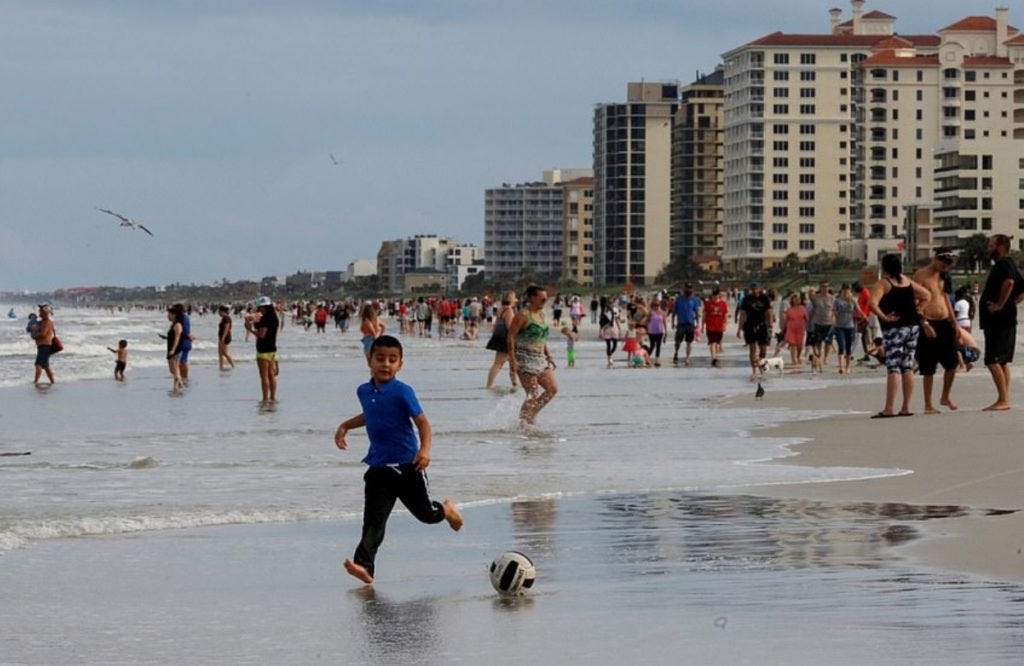So Congested No One Goes There Anymore?
I was glad to see Florida beaches reopen last weekend. Agree with me or not, though, this part seems crazy: “The beaches will be open from 6 to 11 a.m. and 5 to 8 p.m local time.” When you reduce hours of operation, you obviously increase congestion, which in turn obviously impedes social distancing. Upshot: If you’re going to reopen, you should reopen completely.
Is that really so obvious, though? You could demur, “If beaches are less congested, the total number of beach-goers will increase. A larger number of people exposed to a smaller per-person risk is more dangerous than a smaller number exposed to a higher per-person risk.” Or as Yogi Berra put it, “Nobody goes there anymore, it’s too crowded.” But this rationale is hard to believe, especially because would-be beach-goers can engage in other outdoor activities instead. Picture a bunch of would-be beach-goers taking ocean-view walks and bike rides instead.
I guess the rationale of the restricted hours is that 11 AM – 5 PM will be congested no matter what. Only self-starters, in contrast, will get to the beach before 11 AM. How, though, would you defend the evening hours? You don’t have to be highly motivated to hit the beach at 5 or 6 in the evening. In the medium-run, moreover, won’t even slackers adjust their behavior to get their beach time in?
To get a little conspiratorial, perhaps the real goal of the restricted hours is to deliberately make going to the beach inconvenient. Imagine if beaches were open from 4:04 AM to 4:05 AM. As a practical matter, that would be the same as keeping them closed. Current policies, in contrast, are loose enough to draw large crowds.
What’s really going on? It’s probably another absurd political compromise. Some leaders wanted to open the beaches. Others wanted to keep them closed. So they struck a misguided deal that combines human frustration with viral contagion. Alas.

The post appeared first on Econlib.










